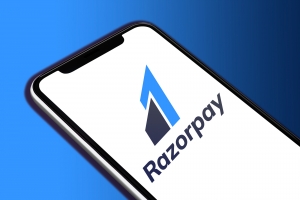Founded in 2014, Razorpay provides companies with payments and digital banking solutions. It has a wide variety of customers, including Indian tech firms such as Flipkart, Zomato, Swiggy, Ola and Cred as well as Google, Meta and Wikipedia.
As India has fast-tracked payment digitization these past two years, Razorpay has grown expeditiously. By December 2021, it achieved total payment volume of roughly US$60 billion, up 300% year-on-year. It aims to reach by US$90 billion by the end of this year.
What makes Razorpay unique among Indian fintechs is its ability to offer banking services to businesses through its neobanking platform RazorPayX. These services allow Razorpay to generate revenue from a wider variety of sources, and at a higher margin in many cases than payments alone. As of late 2021, Razorpay said that its neobanking platform had been growing at 30% month-on-month in transaction volumes.
Compared to Paytm, previously India’s most valuable private fintech, Razorpay’s value proposition is more compelling. Paytm has spent a huge amount of money (especially subsidies) and time trying to become a financial services super app for retail banking, an elusive goal. Razorpay on the other hand is trying to be a one-stop shop for business banking, serving as a payment gateway, disbursing loans, enabling vendor payouts, and paying salaries. It is a less lofty objective, but an eminently more doable one.
Razorpay CEO Harshil Mathur told India’s Inc 42 last April, “The view we carry out is that we are in the B2B space. And, in our business, the burn rates are not very high. So, we don’t actually need too much cash.” Of the company’s long-term goal, he said, “We want to build the entire financial ecosystem for businesses in India, which means everything that a business needs to manage finances, they should be able to do it on Razorpay in the next couple of years.”
While India remains Razorpay’s focus, the company is also foraying overseas. In February, it took a majority stake in the Malaysian B2B payments solutions provider Curlec for an undisclosed sum. Razorpay aims to use its stake in Curlec to tap opportunities in the growing cross-border payments market between India and Malaysia.
In March, Razorpay made yet another acquisition. This time it acquired Zealiant Technologies, a leading Indian fintech startup that provides payments technology solutions for banks, for an undisclosed amount.

